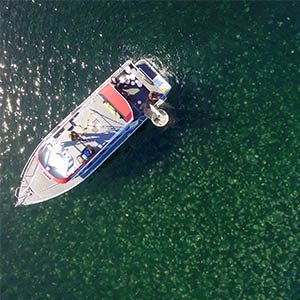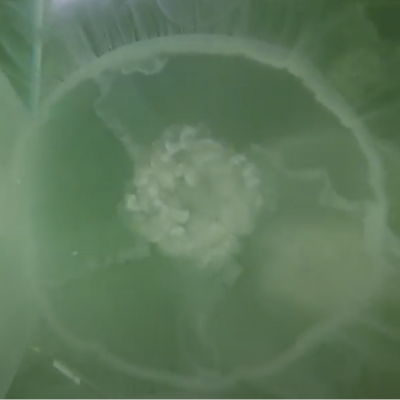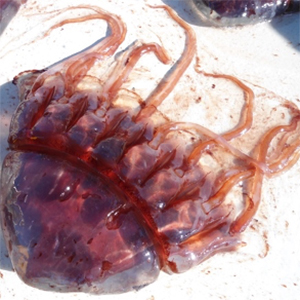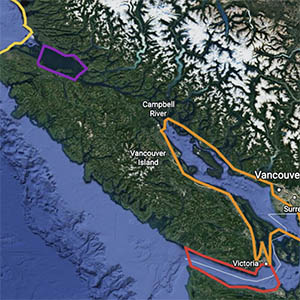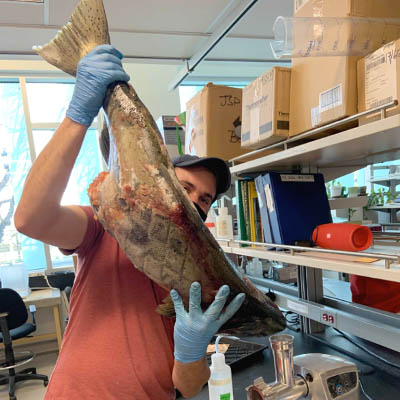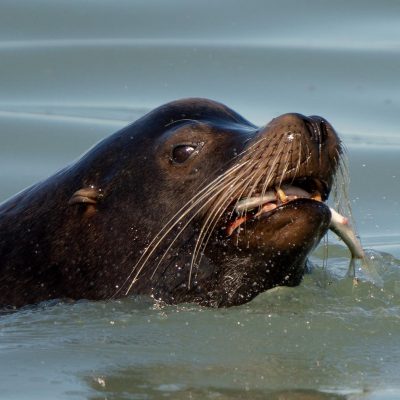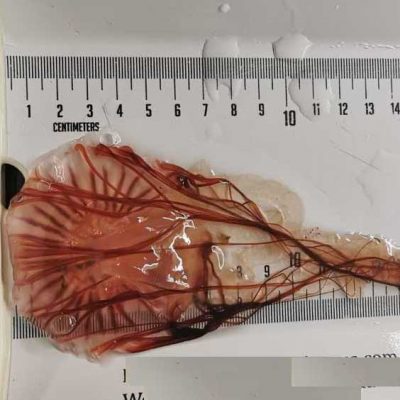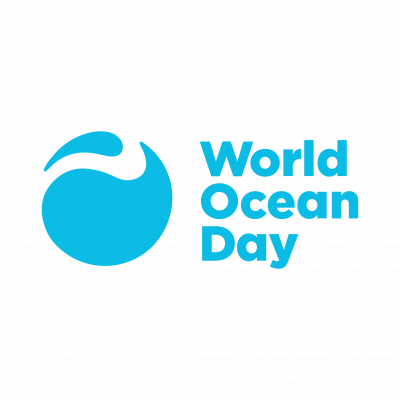Jellyfish size might influence their nutritional value, UBC study finds
Researchers confirmed what was already known: jellyfish eat bigger prey as they grow, which means they also occupy a higher position in the food web as they grow. They also found that some of the concentrations of ‘healthy fats,’ increase as jellyfish grow. These changes might be influenced by their diet, and as they feed on bigger prey with higher levels of fatty acids, the jellyfish accumulate more of these fatty acids.
Climate change may mean more jellyfish in our oceans
On World Jellyfish Day, as climate change kills off competition, jellyfish numbers may rise. UBC researcher Jessica Schaub is working on increasing what we know about these marine creatures and their future.
Jellyfish and gelatinous zooplankton need to be a part of climate change conversations
On World Jellyfish Day, UBC researcher Florian Lüskow, who focuses on freshwater jellyfish says that existing models often poorly include, and heavily oversimplify, these gelatinous organisms.
Expect shorter food chains in more productive coastal ecosystems
“We provided evidence for bottom-up omnivory in nutrient-rich temperate pelagic ecosystems, where food chain length is determined by the level of diatom production,” said Jacob Lerner. “This is very different from the global model for pelagic ecosystems.”
Researchers deploy a new tool to study Chinook salmon fat content on the Fraser River
A Chinook with a short migration to Harrison Lake may offer half the calories to a resident killer whale as a similarly sized Chinook headed to the headwaters of the Fraser River.
Partnership between UBC researchers, marine stewards and K’ómoks First Nation spawns new microplastics findings
What they found helps illuminate the study of microplastics in the ocean, an area of pollution research that is garnering lots of attention due to the many unknowns about how these particles damage the health of organisms that ingest them.
Shedding light on mysterious jellyfish diets
We think of jellyfish as not being picky eaters, but in this case, it seemed that they didn’t like feeding on a single diet.
Kyra St. Pierre wins Banting Fellowship
The fellowship, for postdoctoral fellows, is to develop recipients’ leadership potential and is granted based on the applicant’s research excellence, the quality of their proposed research, and the match between the applicant and the strategic priorities of their academic institute.
2021 World Ocean Day – Dr. Jacqueline Maud
Marine protected areas aim to preserve ecosystem health in the oceans from the top down; Maud’s research looks at the ecosystem more from the bottom-up, and thinks that MPAs can “be tricky.”
2021 World Ocean Week – June 7-11
We asked ocean researchers from the IOF to envision how the target of protecting at least 30% of the world’s oceans by 2030 might be achieved.
